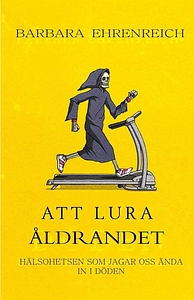You need to sign in or sign up before continuing.
Take a photo of a barcode or cover
medium-paced
The main idea I've taken from this book is that the body is non-unitary; it is made of cells which may comprise systems, but these systems do not all work together for the same end. The book illustrated this well, especially in its description of various members of the immune system.
I found the more philosophical sections weaker. A theme throughout was the idea of agency (and cells having agency), but although it was brought up a lot it felt underexplored. It's unclear what exactly agency means, definitionally and what the significance is for the argument. It kinda felt like trading on the implicit meaning/value of the word 'agency' rather than giving a substantial description of a trait that cells have and is significant for them to have. If we can already accept cells make decisions according to some kinds of algorithms (and if there is insufficient information, 'randomly') shaped by evolutionary pressures towards individual success, rather than that of the whole organism (the consequences of which are my main takeaway from the book) then I'm not sure what work the concept of 'agency' does for the argument/what it adds. A panpsychist perspective would add something, but the definition of agency given explicitly states consciousness isn't required, which was interesting but also confused me/felt underdeveloped.
(Ofc this is a genuine philosophical puzzle/problem (e.g. the role of consciousness, randomness, etc) and not one I expect the author to solve - but given that it is such a deep concept, just providing one definition felt like it couldn't do the work it was suppose to do. Again, I'm not sure what role this concept of agency (and cells having it) plays in the overall argument, really. Maybe I'm being harsh; I don't think the book was worse off for including this section; it is interesting to ponder. I guess it just didn't really make a strong case for anything and could have perhaps been more of an exploration of different conceptions/possibilities rather than trying to assert/push for one concept (which I may be misremembering so sorry if it was actually more exploratory!).
Other philosophical parts , such as the point about the intrinsic inability to imagine the future without one's presence (as we are imagining from our perspective; we can only imagine what the world would be like for us to behold), felt a little trivial.
However, I would still recommend the book as overall it was really interesting. If you're already familiar with health/diet culture discourse then I don't think there's much new analysis (but the historical elements are interesting). The biology is the main strength of the book. Yep!
I found the more philosophical sections weaker. A theme throughout was the idea of agency (and cells having agency), but although it was brought up a lot it felt underexplored. It's unclear what exactly agency means, definitionally and what the significance is for the argument. It kinda felt like trading on the implicit meaning/value of the word 'agency' rather than giving a substantial description of a trait that cells have and is significant for them to have. If we can already accept cells make decisions according to some kinds of algorithms (and if there is insufficient information, 'randomly') shaped by evolutionary pressures towards individual success, rather than that of the whole organism (the consequences of which are my main takeaway from the book) then I'm not sure what work the concept of 'agency' does for the argument/what it adds. A panpsychist perspective would add something, but the definition of agency given explicitly states consciousness isn't required, which was interesting but also confused me/felt underdeveloped.
(Ofc this is a genuine philosophical puzzle/problem (e.g. the role of consciousness, randomness, etc) and not one I expect the author to solve - but given that it is such a deep concept, just providing one definition felt like it couldn't do the work it was suppose to do. Again, I'm not sure what role this concept of agency (and cells having it) plays in the overall argument, really. Maybe I'm being harsh; I don't think the book was worse off for including this section; it is interesting to ponder. I guess it just didn't really make a strong case for anything and could have perhaps been more of an exploration of different conceptions/possibilities rather than trying to assert/push for one concept (which I may be misremembering so sorry if it was actually more exploratory!).
Other philosophical parts , such as the point about the intrinsic inability to imagine the future without one's presence (as we are imagining from our perspective; we can only imagine what the world would be like for us to behold), felt a little trivial.
However, I would still recommend the book as overall it was really interesting. If you're already familiar with health/diet culture discourse then I don't think there's much new analysis (but the historical elements are interesting). The biology is the main strength of the book. Yep!
I am somewhat in two minds about this book and thus its review. The book came across as interesting, but fragmented and sometimes with bad or uninformed reasoning to start with, then very technical about cell biology and the immune system (turns out Ehrenreich has earned her PhD in cell biology) which seems unnecessarily detailed for what seems to be the purpose of the book. And it ends with a very interesting chapter which brings all of it together. What I gathered from it were the similarities in how our own immune system is meant to defend us, but sometimes works against our health just like our concept of self is meant to do us good, but may be the cause for many psychiatric problems such as depression (further evidenced by patients that use mind altering drugs which more are less takes away their sense of self, replacing it by a sense of being part of something bigger, which brings them more peace of mind. This reminded me very much of the concept of non duality in Buddhist teachings and seems to back this up. Interesting stuff).
At times I wouldn't have given this book more than a 1 or 2 star review, but the interesting chapters alone warrant a 4 star review, inspite of this book being a drudge in large parts. One thing is for certain: this book is a lot less philosophical than I would have expected and at times (as mentioned) being less factual and well reasoned than expected. But when it is good it's really good.
At times I wouldn't have given this book more than a 1 or 2 star review, but the interesting chapters alone warrant a 4 star review, inspite of this book being a drudge in large parts. One thing is for certain: this book is a lot less philosophical than I would have expected and at times (as mentioned) being less factual and well reasoned than expected. But when it is good it's really good.
Heavier on biology and lighter on societal constructs of death than I had expected, but the author is a biologist so I can’t fault her. She’s brilliant and well-spoken with just the right amount of dark humor interspersed.
This reads like a long essay, lots of opinions backed up with anecdotes. There are a few study references sprinkled in it, but it's mostly a thought piece.
From the personal to the universal
The book begins with a delightful cantankerous review of health care in the western world and evolves to discuss cell biology, complex systems, religion and philosophy. What some may read as dark subject (discussion of death) becomes a celebration of a dynamic universe.
The book begins with a delightful cantankerous review of health care in the western world and evolves to discuss cell biology, complex systems, religion and philosophy. What some may read as dark subject (discussion of death) becomes a celebration of a dynamic universe.
This book went in too many directions. While I agree with many of Barbara Ehrenreich's directly stated premises, I (almost) got lost in the maze of macrophages. I love her style--smart, snarky and sarcastic. Note to self: Remember the magic mushroom idea.
Cherry-picked all to hell, doesn't support the thesis, promotes Western ideas as general human psychology, and the final chapter about the eventual heat death of the universe is just creepy. Would read better as a series of unconnected essays. My suggested title? "Old Woman Yells at Clouds."
Why, Barbara Ehrenreich? Why?
Why, Barbara Ehrenreich? Why?
inspiring
lighthearted
reflective
fast-paced
There are parts of this book that feel slightly underbaked but I think the basic ideology and view of death and agency feels real and well depicted
I might return to sometime when I've read all the other books, but I'm giving myself permission to put down books I'm not enjoying. She probably has great information, and I bet another author would have written a fucking amazing book with her notes & research, but her ax to grind is inhibiting my enjoyment.




